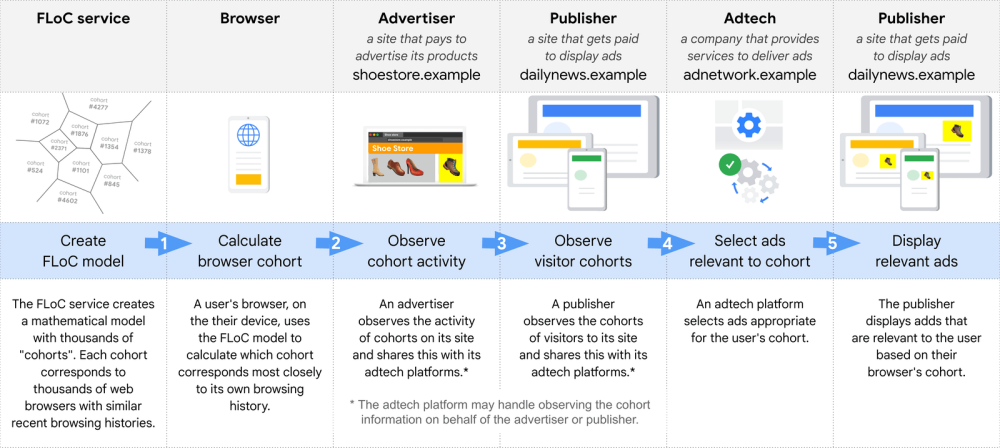
Google announced the Privacy Sandbox in 2019 to build a more private web through open standards. The most ambitious aspect is phasing out support for third-party cookies, with Google Chrome now starting a developer test of Federated Learning of Cohorts (FLoC).
In its announcement today, Google summarized how it’s “excited” about other browsers blocking third-party cookies by default, but “worried because today many publishers rely on cookie-based advertising to support their content efforts.” Additionally, in light of cookie blocking, there’s been an increase in device fingerprinting and other privacy-invasive workarounds.
Overall, we felt that blocking third-party cookies outright without viable alternatives for the ecosystem was irresponsible, and even harmful, to the free and open web we all enjoy.
Google’s alternative is called Federated Learning of Cohorts, and it has three big tentpoles. FLoC works by grouping thousands of users with similar browsing histories into a “cohort” that’s created by on-device machine learning analyzing your web history. The list of sites you visit does not leave your browser (federated learning), with only the “cohort id” being revealed and used for advertising.
Cohorts are defined by similarities in browsing history, but they’re not based on who you are individually. In fact, which cohort you are in frequently changes as your browsing history changes.
Unlike third-party cookies, individual tracking is not possible with FLoC. Meanwhile, the browser will not create groups that are deemed “sensitive.”
Before a cohort becomes eligible, Chrome analyzes it to see if the cohort is visiting pages with sensitive topics, such as medical websites or websites with political or religious content, at a high rate. If so, Chrome ensures that the cohort isn’t used, without learning which sensitive topics users were interested in.

Today, FLoC is becoming a developer origin trial test in Google Chrome for a “small percentage of users in Australia, Brazil, Canada, India, Indonesia, Japan, Mexico, New Zealand, Philippines and the U.S.” Testing will expand globally later.
If you’ve chosen to block third-party cookies with the current version of Chrome, you won’t be included in these origin trials. In April, we’ll introduce a control in Chrome Settings that you can use to opt out of inclusion in FLoC and other Privacy Sandbox proposals.
Author: Abner Li
Source: 9TO5Google



